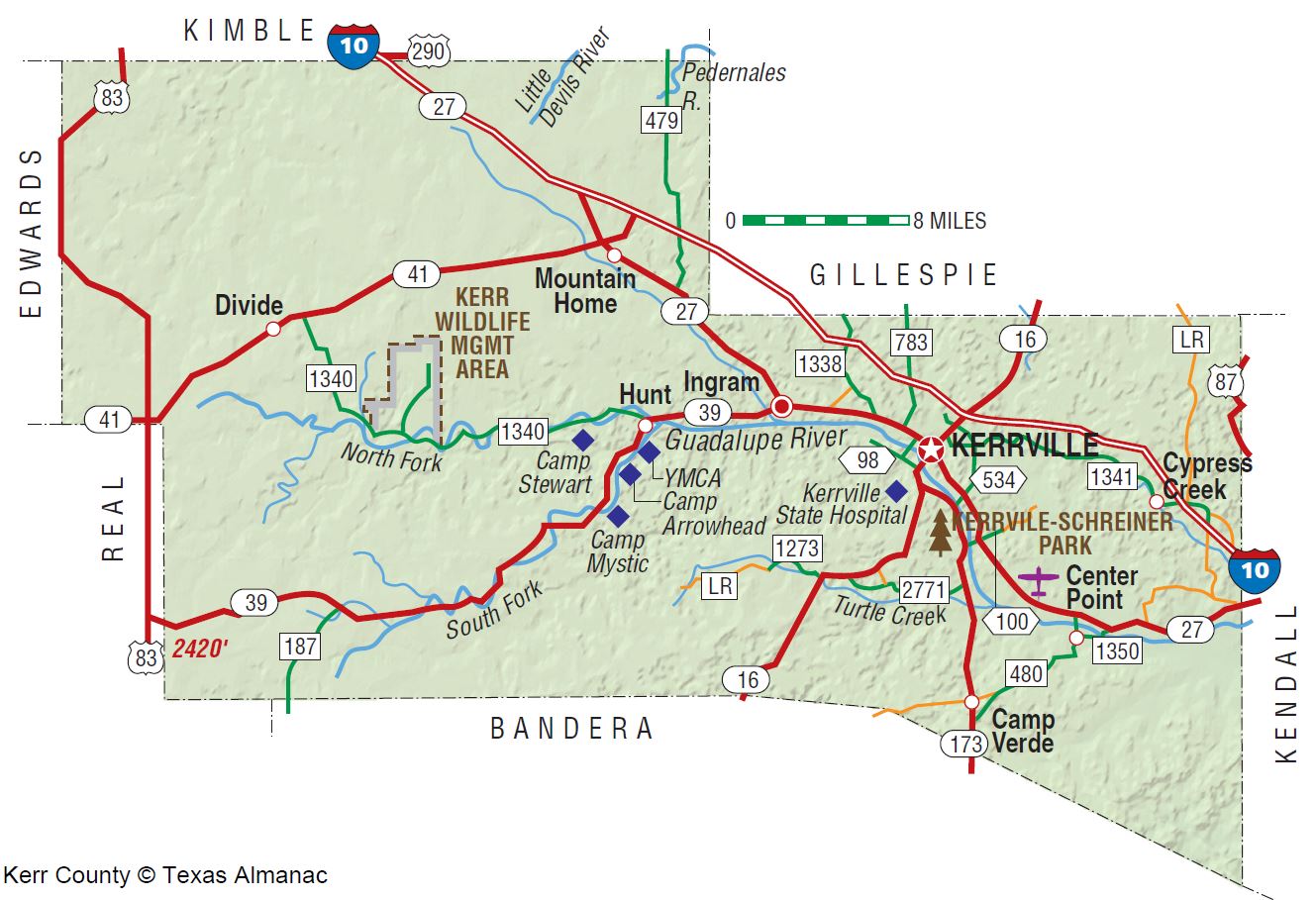Kerr County Wildlife Tax Valuation
Question: I am interested in getting a wildlife exemption on my Kerr County property. I have done quite a bit of research already, but I am still not close to figuring out exactly what I need to do. I am interested in managing for songbirds and bats. My property is not big enough (34 acres) to manage for deer.
I want to provide food by planting but it is unclear on what to plant in the food plot, or how picky the county appraisal district is about the food plots. Can I just state a mixture of wildflowers and summer dove/quail mix, or does it have to list a specific mixture such as 25 percent sorghum, 25 percent millet, etc? Also, do I have to identify a species of bats, or can I just say bats?

Wildlife Management Answered
First off, I will assume the property has an agricultural tax valuation (exemption). If this is the case, then you do have the option to convert your property from ag use to wildlife use. Many landowners in Kerr County are converting over to wildlife management, so you are not alone!
Most landowners find managing for native wildlife both interesting and fun. Developing habitat on your land to help target species, whether songbirds or white-tailed deer or bats, is quite rewarding. Additionally, most landowners with a traditional agricultural “exemption” are already doing management practices that benefit wildlife.
Managing the habitat for proper nutrition should be the primary management goal, but food plots established for targeted wildlife species is a great way to attract, benefit and hold those species on a property. Of course, planting of food plots is not a substitute for good management, whether in Kerr County or elsewhere. The use of food plots should only be considered as supplement to the native habitat.

The wildlife tax valuation special appraisal developed by the Texas Comptroller is not easy reading for most folks. Even many wildlife professionals, those well-versed in wildlife management, have trouble working through the qualifications for wildlife use.
There are many options when it comes to providing supplemental food for targeted wildlife. In this case, food plots can be used as a qualifying practice for songbird management, specifically for those songbirds that eat seeds. This practice also works great for doves, quail and turkey, but not all of these species make sense on all properties.
When it comes to supplemental plantings, there are no specific guidelines for what landowners must plant into plots since the wildlife targeted for management varies, but food plots do need to meet size requirements for the property size and the wildlife species targeted for management. Failure to get this part right within your management plan will result in a denial by the county appraisal district.
A landowner can be very specific or somewhat vague when it comes to species target for management for the purpose of the wildlife exemption. When developing a management plant for a property, we as landowners can write in “eastern bluebird” or “painted bunting” or we can simply say “songbirds.” The same is true for bats. We can write in a specific bat species of interest or we can simply say “bats.”
The wildlife species targeted by a landowner must make sense for the area and the property. A landowner can target one native wildlife species (mourning dove), several wildlife species (doves), or an entire group of wildlife (such as songbirds). Songbirds and bats make sense in Kerr County and elsewhere in Texas, since they are widespread. Prairie dogs, for example, would not work as these animals are not in the area. We can help you convert your Kerr County property from an ag tax valuation to a wildlife tax valuation. We specialize in putting together wildlife management plans that help landowners achieve their goals on their property and maintain a wildlife exemption on the property. We provide no-obligation management recommendations after learning just a little about your property and your goals.
We can help you convert your Kerr County property from an ag tax valuation to a wildlife tax valuation. We specialize in putting together wildlife management plans that help landowners achieve their goals on their property and maintain a wildlife exemption on the property. We provide no-obligation management recommendations after learning just a little about your property and your goals.